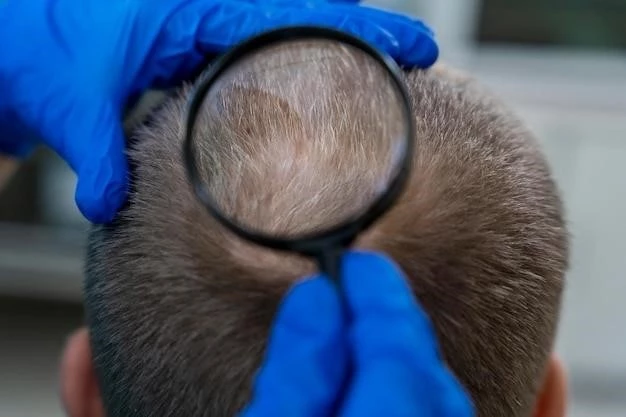Cartilage Hair Hypoplasia Syndrome is a rare genetic disorder
that affects bone growth and the immune system. Learn more about
this condition and how it can impact individuals.
Understanding Cartilage Hair Hypoplasia Syndrome
Cartilage Hair Hypoplasia Syndrome is a rare genetic disorder
characterized by short stature, sparse hair, and immune system
issues. It can lead to skeletal abnormalities and increased
susceptibility to infections. Understanding the complexities of this
syndrome is crucial for effective management.
Symptoms and Diagnosis of Cartilage Hair Hypoplasia Syndrome
Recognizing symptoms like short stature, fine hair, and immune
issues is key to diagnosing Cartilage Hair Hypoplasia Syndrome.
Diagnostic tests such as genetic screening play a crucial role in
confirming the condition;
Common Symptoms of Cartilage Hair Hypoplasia Syndrome
Common symptoms of this syndrome include short stature,
sparse or fine hair, skeletal abnormalities, and a weakened immune
system. Individuals may also experience gastrointestinal issues
and an increased risk of certain cancers.
Diagnostic Procedures for Cartilage Hair Hypoplasia Syndrome
Diagnosis often involves genetic testing to identify mutations
in the RMRP gene. Imaging studies like X-rays and bone density
scans help assess skeletal abnormalities. Blood tests may be
performed to evaluate immune system function.
Treatment Options for Cartilage Hair Hypoplasia Syndrome
Medical interventions and surgical treatments can help manage
symptoms. Regular monitoring and addressing associated
complications are essential for individuals with this syndrome.
Medical Interventions for Cartilage Hair Hypoplasia Syndrome
Medical treatments focus on managing immune system
issues and addressing skeletal abnormalities. This may include
antibiotics for infections, growth hormone therapy, and
supplementation to support bone health.
Surgical Treatments for Cartilage Hair Hypoplasia Syndrome
Surgical interventions may be necessary to correct skeletal
abnormalities such as limb deformities. Procedures like limb
lengthening or corrective surgeries can improve mobility and
overall quality of life for individuals with this syndrome.
Genetic Causes of Cartilage Hair Hypoplasia Syndrome
Understanding the genetics behind this syndrome is crucial
for diagnosis and treatment strategies. Learn about the
specific genetic mutations associated with Cartilage Hair
Hypoplasia Syndrome.
Understanding the Genetic Basis of Cartilage Hair Hypoplasia Syndrome
Cartilage Hair Hypoplasia Syndrome is caused by mutations
in the RMRP gene, affecting the development of bones and the
immune system. Delve into the intricate genetic mechanisms
underlying this rare genetic disorder.
Inheritance Patterns of Cartilage Hair Hypoplasia Syndrome
Cartilage Hair Hypoplasia Syndrome follows an autosomal
recessive inheritance pattern. Both parents must pass on a
copy of the mutated gene for the child to inherit the disorder.
Explore the genetic transmission of this condition.
Managing Complications Associated with Cartilage Hair Hypoplasia Syndrome
Evaluating and addressing bone, joint issues, and immune system
function is crucial for effective management of this syndrome.
Addressing Bone and Joint Issues
Individuals with Cartilage Hair Hypoplasia Syndrome may require
treatments like physical therapy, orthopedic interventions, and
medications to manage bone and joint complications. Regular
monitoring is vital to prevent further issues.
Monitoring Immune System Function
Regular monitoring of the immune system is essential for individuals
with Cartilage Hair Hypoplasia Syndrome. This may involve
periodic blood tests, vaccinations, and prompt treatment of
infections to maintain overall health.
Research Advances in Cartilage Hair Hypoplasia Syndrome
Discover the latest studies and breakthroughs in understanding
and treating Cartilage Hair Hypoplasia Syndrome.
Current Studies and Findings
Ongoing research explores potential therapies and outcomes for
individuals with Cartilage Hair Hypoplasia Syndrome. Stay
informed about the latest scientific investigations and findings
in this field.
Promising Developments in Treatment Approaches
Emerging treatment strategies hold promise for enhancing the
care and quality of life for individuals with Cartilage Hair Hypoplasia
Syndrome. Explore the innovative approaches being developed
to address this genetic condition.

Living with Cartilage Hair Hypoplasia Syndrome
Explore strategies and insights to improve the quality of life for
individuals managing Cartilage Hair Hypoplasia Syndrome.
Coping Strategies for Individuals and Families
Developing coping mechanisms and seeking support can aid in
navigating the challenges of Cartilage Hair Hypoplasia Syndrome.
Educational resources and emotional support play a crucial role
for individuals and their families.
Enhancing Quality of Life with Cartilage Hair Hypoplasia Syndrome
Improving quality of life involves holistic care approaches,
including physical and emotional well-being support. Strategies
such as adaptive technologies and community engagement can
enhance daily living for those with this syndrome.
Support Resources for Individuals with Cartilage Hair Hypoplasia Syndrome
Find patient organizations and access educational support for
individuals and families affected by Cartilage Hair Hypoplasia
Syndrome.
Patient Organizations and Support Groups
Join communities that provide guidance and camaraderie for
individuals with Cartilage Hair Hypoplasia Syndrome. Collaboration
with patient organizations can offer valuable resources and
emotional support for those affected;
Accessing Educational and Emotional Support Services
Explore educational resources and seek emotional support to
enhance well-being while living with Cartilage Hair Hypoplasia
Syndrome. These services can provide valuable insights and
guidance for individuals and families.
